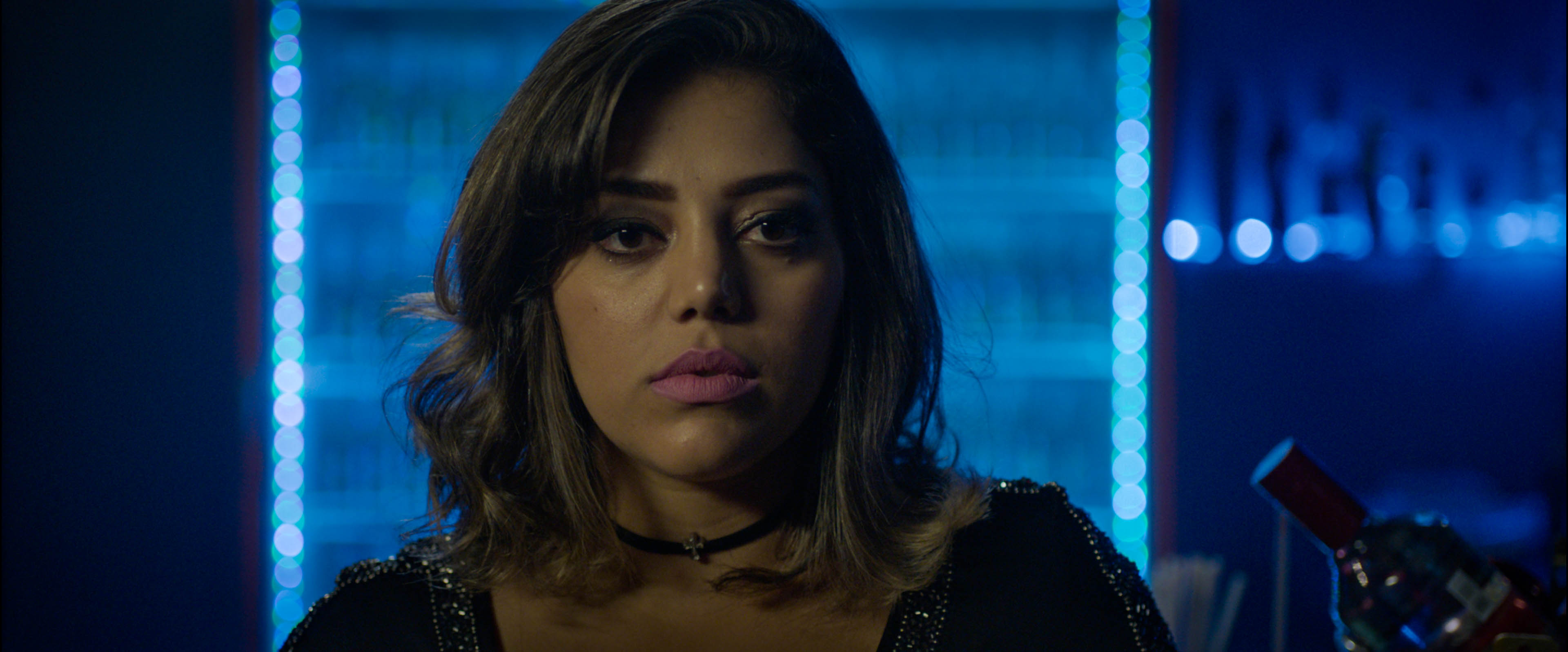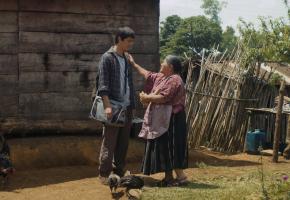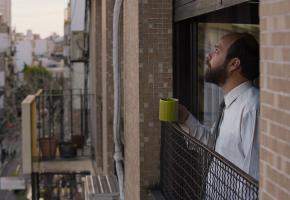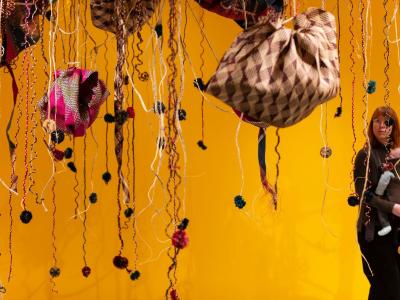In 'Madalena' the three characters Luziane, Cristiano, and Bianca have almost nothing in common, beside the fact that they all live in the same rural city surrounded by soy fields in western Brazil. While they don’t know one another, each of them is affected by Madalena’s disappearance. In different parts of the town, each in their own way, they react to her absence.
When it comes to violence against trans-gender people in Brazil, the statistics are shocking, and we depend on a number of voluntary organizations to collect them because the Brazilian government does not. Violence specifically against trans people is on the rise: comparing 2008-2011 with 2017-2020: the average annual number of trans murders doubled (from 81 to 160) while the Brazilian population only increased from 194 to 209 million, and the annual homicide rate per 100,000 only increased from about 27.3 to 29.5. According to statistics gathered on culprits that are found (which mostly arent) 80% of the murderers have a military background.
A trans person grows up in Brazil is subject to exclusion from all sides, including school friends and their own family, are often murdered with extreme brutality, which killers frequently describe in detail, and the police often refuse to classify the murders as hate crimes. 56 % of trans murders were of people aged 15 – 29. The exclusion continues in employment, and it is estimated that 90% of transvestites and transexual women in Brazil earn a living from prostitution. Shocking too is the fact that 15 out of Brazil’s 27 states do not record these murders as hate crimes. And it is well-known by now that Bolsonaro has spoken openly of his prejudices against all kinds of minority groups.
This is the context in which I interview Madiano Marcheti director of 'Madalena' one of the victims of this increasing violence.
LatinoLife: Can you say more about the story of the area you grew up in, - how Govt policy in the 60s and 70s affected your family and your view looking back?
Madiano Marcheti: During the military dictatorship in Brazil in the 1960s and 1970s, the government sponsored massive campaigns encouraging families to migrate to southern Amazonia so as to populate the region and create a hub for agriculture and livestock. Thousands of families went and founded new cities in search of a better life. It was the continuation of a development model employed by the powerful since colonial times: ideas of “progress” or “development” being almost entirely based on the exploitation of natural resources and monoculture plantations.
This migratory process in the north of Mato Grosso state, caused huge impacts on the environment, which was converted into pasture for livestock or plantations. This development model had critical consequences for the local Indigenous population and the environment, and it was painfully unequal. My family never worked with anything related to agribusiness, but like thousands of others migrated in search of a better life and helped to found one of the many cities in the region, eventually fulfilling the development plan of the military. I am proud of my origins, but it would be blindness not to recognize the grave damage this process has wrought, on nature and in terms of the erasure of indigenous peoples. I wanted to shed light on the region I come from through cinema by looking back or inwards while trying to make sense of how these recent processes have impacted and shaped the lives of people and nature.
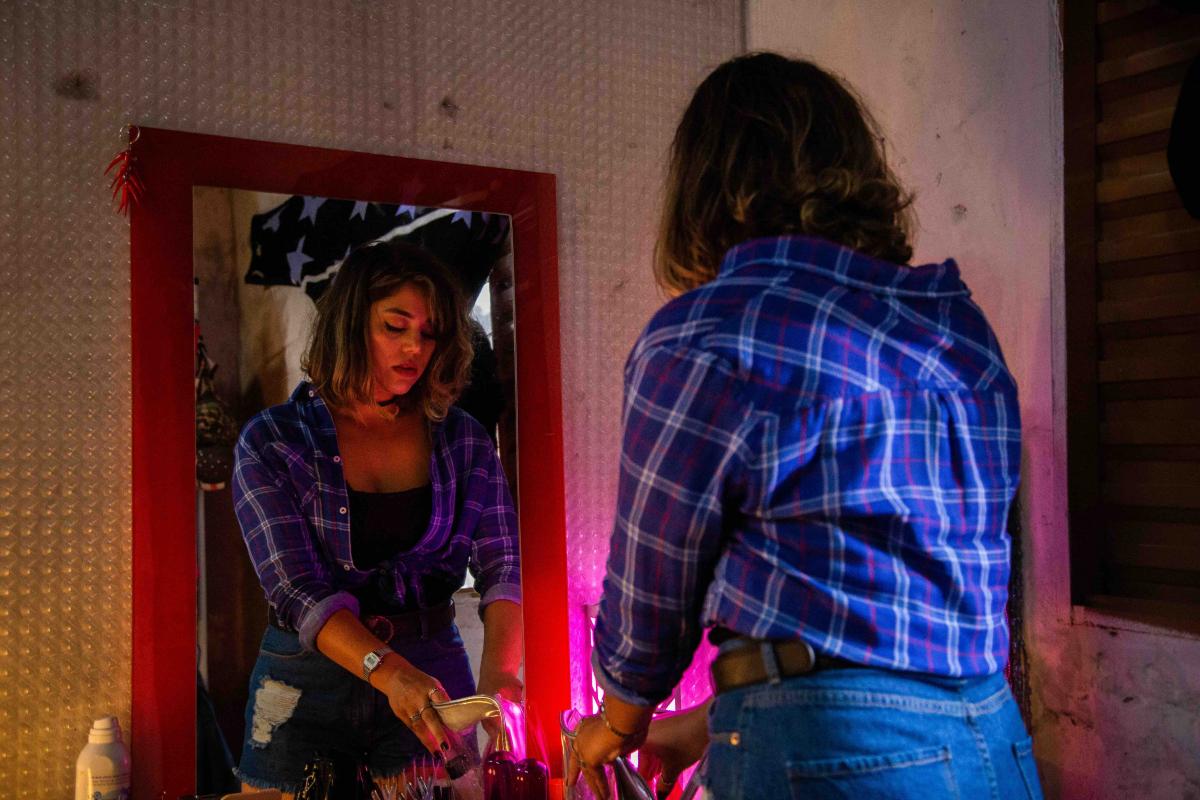
LL: Was it easy to get to know Trans people in the region where you live, while researching the film, or did you already have Trans friends?
MM: Before directing Madalena, I had only met a few trans people during my undergraduate time. But during the long process of writing the film’s script, I had the chance to have exchanges with trans people who made great contributions to it, helping me make key choices regarding the importance of making an honest and empathetic representation of trans people; one that escaped the societal stereotypes regarding trans people. And during the shooting, I was fortunate to meet and become friends with several talented professionals that are trans people who joined the crew and the cast of the film.
LL: You wanted the film to show a different Brazil to people in other continents. There is not much tourism in the Centre-West of Brazil – how do you think Europeans view Brazil?
MM: The representation of Brazil in film and TV for international audiences has historically focused on the big centres by the coastal areas, where São Paulo and Rio de Janeiro are located, and the Northeast, to a lesser extent. Even within the country, the Centre-West region still remains largely unknown to most Brazilians. However, thanks to policies aiming at decentralizing the film sector in Brazil that were put in place in the past two decades, the national industry started to increasingly portray Brazil to international audiences through different angles and perspectives, showing the real plurality of a country of continental proportions. Excellent productions from various regions showing diverse ‘Brazils’ have started to circulate inside and outside the country, showing new places and characters that help to reveal the complexity of what Brazil is, of our past, and glimpsing possible futures for our country. Madalena is part of this scenario.
 Rafael de Bona as Luziane
Rafael de Bona as Luziane
LL: The 3 regions where most trans people are murdered are the North-East, North and Centre-West, where you made your film. They are very different one from another – is there anything in common in their reaction to trans people, compared to say Rio de Janeiro? And how is it different from the way they see gays?
MM: As a cisgender man, I can only speak from my own perception and also based on what I learned from trans friends. Despite possible regional differences in violence rates against transgender people, Brazil overall has an alarming homicide rate of the trans population, whose life expectancy is only 35 years. One of the reasons for the violence against LGBTQIA people is ignorance and fear of what has been socially and historically constructed as ‘different’, as the ‘other’. Transgender people in Brazil, have been historically represented in popular culture in two ways: through the prism of criminality/marginalization or through mockery. I grew up watching Trans people represented on TV as victims of violence and homicide or after being arrested for petty crimes; or in TV shows where they were almost always portrayed as the subject of laughter and ridicule (with the roles being played by cisgender actors). These images of trans people remained in my imagination, and still remain for most Brazilians. This vicious misrepresentation of transgender people helps perpetuate the structure of social and institutional exclusion that puts trans people on the margins of society and serves as a basis for the propagation of various forms of violence (not only in terms of physical violence, but other forms too such as verbal, psychological, legal barriers, obstacles to access education, health and the labour market, etc.). In this sense, Madalena proposes a different path when it comes to the representation of transgender people in Brazilian audiovisual.
LL: You speak of a crisis of empathy and hope that your film contributes to Trans people being accepted as human beings. Can you say more?
MM: When I say “crisis of empathy”, I’m referring to the inability to identify with the emotions of another, an issue which is typically exacerbated when that “Other” is perceived by society as a deviation from the norm, as is the case with trans people. This is nothing new, but the far-right wave sweeping Brazil has aggravated what was already an appalling situation. Policy is dictated by fear, causing an escalation of violence against the bodies of people seen as “deviants.” But bodies seen as enemies by a part of society must be properly understood to be human as they are, and practicing empathy is a fundamental part of that process. I hope that the film can contribute to raising a discussion about the representation of trans people, and as a society we can be more empathetic towards LGBTQ+ people, especially transgender people.
LL: I was very struck by Pamella Yule’s (who plays Bianca in the film) comment that Trans people ‘make fools of ourselves romantically’ and are left living on emotional crumbs. This seems to cut through to questions of simple humanity.
MM: I think it would actually be great if you could talk to Pamella about this in more depth! But what I understand from her comment is that trans people face violence at various levels, meaning not only physical violence, but emotional too. Many trans people face rejection from their family. Many others struggle with romantic isolation and loneliness. And sometimes, trans people who have a partner, may still suffer emotionally with the fear that their partners may leave them if they come out as trans, and some may feel that they have to endure abusive relationships because they are afraid to be alone and not be able to find another partner... That is why I think that Pamella talks about situations of emotional precariousness that some trans people go through in romantic relationships.
 Madiano Marcheti
Madiano Marcheti
LL: You got several sponsors despite this being a subject that is not very popular with Bolsonaro – was that difficult?
MM: The film is entirely Brazilian, produced almost entirely with federal and some local public funding. The film was “born” in 2014, when the script began to be written. That was a very different Brazil. Madalena had the privilege of being part of a moment when there was a Ministry of Culture and when the National Film Agency (ANCINE) was working at full speed and propelling the decentralization of the sector to different regions of the country. Today we live in a dark moment, where the institutions that support cinema are either extinct, paralyzed, or dismantled, because of extremist politicians who perceive the cultural sector as an ‘enemy’.
With Madalena, we had no difficulties at the beginning of the process because we got the support for financing before the change of government in 2018. However, after that, we had difficulties in finding financing to finish the film.
LL: Do you have another project in preparation?
My next feature will also take place in my region of origin. The film delves into the universe of illegal gold-digging sites in Brazil. It’s a dark song about a woman moving into old age and beginning to trust her own instincts as she develops a bond with nature through dreams. The story takes place against the backdrop of the turbulent, delusional period that Brazil is going through - a moment when absolutely everything seems possible.


